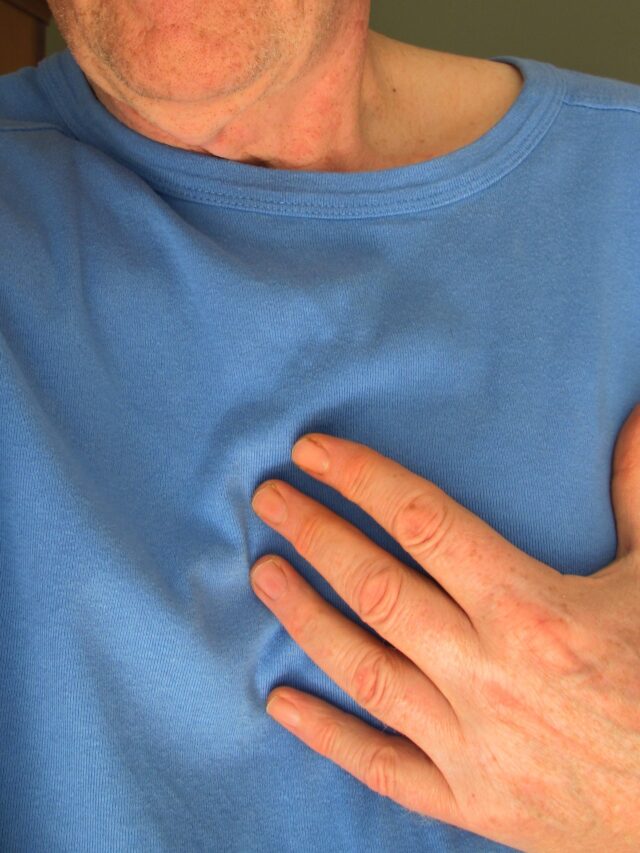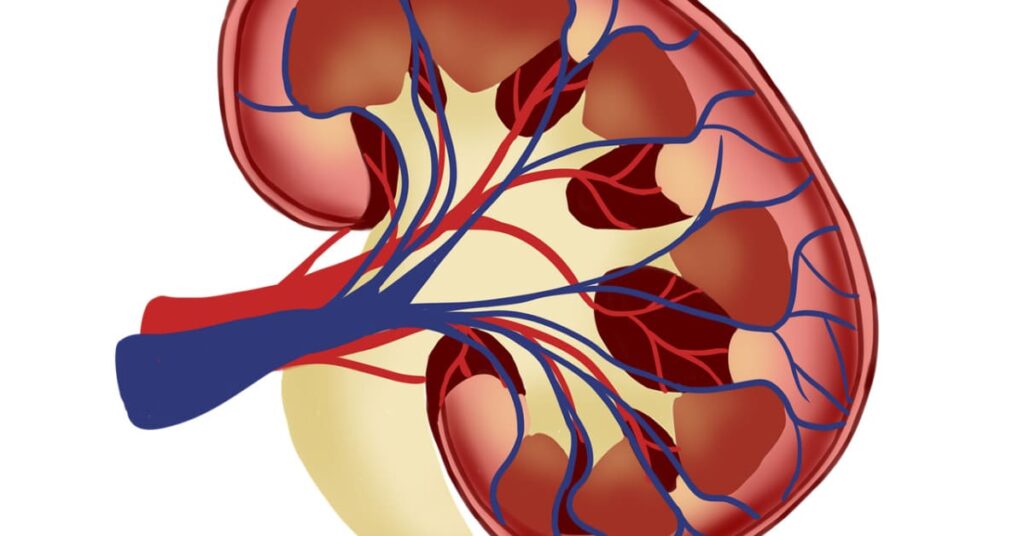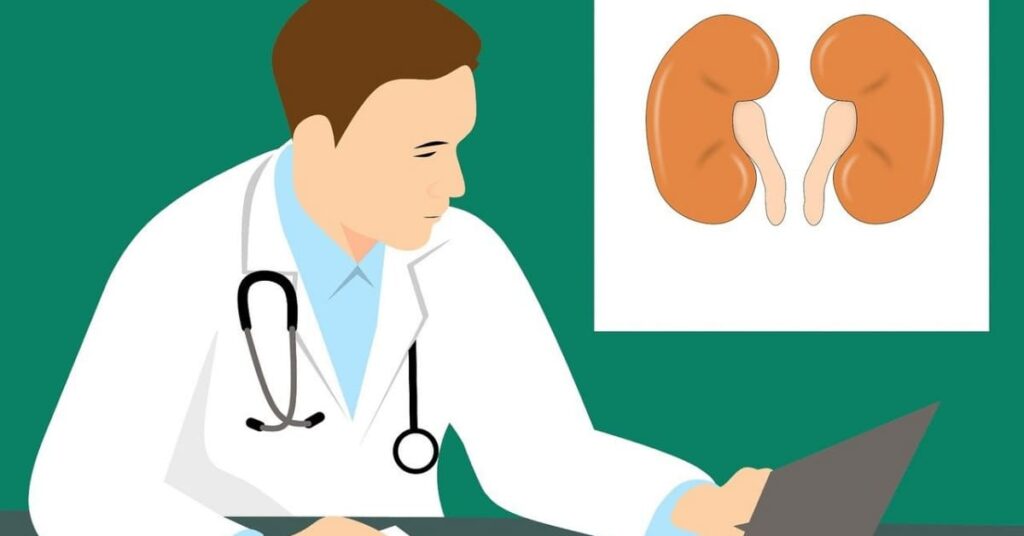ACUTE KIDNEY INJURY:
Previously it was known as ACUTE RENAL FAILURE.
It is a condition in which the glomerular filtration rate (GFR) is reduced that can occur within hours to a few days and it leads to the accumulation of nitrogenous waste in the body which otherwise could have been removed.
TYPES OF ACUTE RENAL INJURY:
1) PRERENAL
2) INTRINSIC
3) POSTRENAL
CAUSES OF ACUTE KIDNEY INJURY:
A) PRERENAL AKI-
1) HYPOVOLEMIA- It is a condition in which the fluid level of the body decreases. It can occur due to various causes like excessive uncontrolled bleeding, burn, diarrhoea, vomiting, dehydration.
2) CARDIAC PROBLEM like arrhythmia, myocardial infarction.
3) MEDICINE like NSAIDs, epinephrine, norepinephrine, amphotericin B, ACE inhibitors. These medicines can lead to renal vasoconstriction which causes decreased blood flow and injury to renal cells.
4) Severe infection.
B) INTRINSIC AKI:
1) Severe hypovolemia.
2) Infection like cytomegalovirus (CMV), candida, leptospirosis.
3) Increased uric acid level.
4) Renal artery obstruction which can be due to embolism, thrombosis, vasculitis.
5) Renal vein obstruction that can be due to any mass compressing the vein or thrombosis.
6) Hypertension which is not controlled adequately.
7) Glomerulonephritis
8) Systemic lupus erythematosus.
9) Thrombotic thrombocytopenic purpura.
10) Pregnancy complications.
C) POST RENAL AKI:
1) Ureteric calculi
2) Stricter, phimosis of urethra
3) Benign hypertrophy prostrate
4) prostate cancer
5) Neurogenic bladder
6) Clot formation
7) Fungus ball
PATHOPHYSIOLOGY OF ACUTE KIDNEY INJURY:
As discussed earlier there are many causes of AKI and these diseases can lead to decrease blood supply to the renal system and the renal cells undergo ischemia due to less amount of oxygen and nutrients reaching them.
This leads to decreased production of urine and since waste products are not able to get excreted out through urine, so waste products start accumulating in the body. This further damages the cells in the kidney and the patient can go into oliguria.
When the cause of injury to the kidney is addressed properly then renal blood flow increases and slowly reaches the normal level and with this patient enters into the diuretic phase and the accumulated waste products start getting excreted with urine again.
CLINICAL FEATURES OF AKI:
1) Flank pain and suprapubic pain are sometimes the first symptoms that appear if the patient is suffering from calculi. Pain radiating to the scrotal area is more common in ureteric calculi.
2) Increased frequency of urination at night (Nocturia).
3) Hesitancy in urination.
4) Narrow stream of urine flow.
5) Oliguria in which the patient passes less than 400ml of urine per day.
6) Increased thirst.
7) Tachycardia
8) Swelling of lower limbs or sometimes in the whole body also.
9) Decrease jugular venous pressure.
10) Dizziness especially in standing position.
DIAGNOSIS OF ACUTE KIDNEY INJURY-
1) HISTORY TAKING:
It is very important in making a diagnosis of acute kidney injury.
a) It is important to ask about the previous history of long-standing diseases such as liver or heart disease. If the patient was taking any medication for a long time.
b) Patient may give a history of excessive vomiting or diarrhoea.
c) Any history of trauma or burn should be inquired.
2) LABORATORY INVESTIGATION:
a) Complete haemogram is necessary as it can give a clear picture regarding the haemoglobin status of the patient, WBC count and other blood-related pictures to diagnose any pathology which can point towards infection or any other disease.
b) Serum BUN (blood urea nitrogen), bicarbonates, creatinine, electrolytes, calcium, phosphate.
c) Antinuclear antibody (ANA), Antineutrophil cytoplasmic antibody (ANCA), Anti- glomerular basement membrane (Anti-GBM), ASO (Anti streptolysin O), cryoglobulin, complement.
d) Routine urine investigation should be done. Urine analysis for Bence-Jones protein and eosinophil is also done.
e) Prostate-specific antigen (PSA) can be checked if the prostate is suspected as the cause.
f) white blood cells cast in urine analysis can point towards interstitial nephritis.
g) crystal in urine in AKI can be due to excessive use of pain killers (NSAID’s).
3) ULTRASOUND:
This imaging technique can show hydronephrosis which is the retention of fluid due to the backflow of urine. Ureteric calculi are the most important common cause for this which causes obstruction in the ureter and doesn’t allow free flow of urine through the ureter.
Other findings for post renal acute kidney injury are: prostatomegaly (increase in the size of the prostate)
Hydroureter (increase in the size of the ureter).
TREATMENT OF ACUTE KIDNEY INJURY:
1) Haemodynamic status should be assessed and maintained adequately.
2) Cause for the kidney injury should be identified and treated adequately to prevent further progression of the disease.
3) If passed is in oliguria then the doctor mostly advises reducing the fluid intake.
4) Sometimes doctors may give vitamins and minerals to improve the overall nutritional status of the patient.
5) Dialysis is needed in some patients whose kidney function test values are not improving or patients is in oliguria and not showing signs of improvement. Peritoneal dialysis is done for children.
Indications for dialysis include serum creatinine of more than 10 mg/dl, acidosis, diuretics not effective, multi-organ failure.
COMPLICATIONS OF AKI:
1) Hyperkalemia
2) Hypocalcemia
3) Hypermagnesaemia
4) Hyperuricemia
5) Metabolic acidosis
6) Anaemia
7) Bleeding
8) Urinary tract infections
9) Altered sensorium
10) cardiac arrhythmia
11) pulmonary oedema
PREVENTIVE MEASURES FOR AKI:
1) Eat a healthy diet with low oil content. Fruits should be added to the diet they are rich in vitamins and minerals.
2) Keep the salt intake under control.
3) Drink an adequate amount of water.
4) Regular exercise.
5) Keep the weight under control.
6) If suffering from diabetes or hypertension, then take proper medication as prescribed by the doctor to avoid worsening of disease which can lead to kidney problems.
7) Aged people should regularly get checked to avoid any sudden serious changes in kidney function.
8) Avoid self-medication especially pain killers as they are excreted through the kidney and excessive use of this medicine can have a negative impact on the kidney.
9) Pregnant women should continuously visit the doctor to get a prenatal checkup.
10) Avoid drinking alcohol and tobacco use as they can lead to atherosclerosis plaque formation in blood vessels which can cause less blood supply to the kidney.









You have given us very important data. It is excellent and informative for everyone. Keep posting always. I am heartily thankful to you. sports injury clinic Calgary
I found decent information in your article. I am impressed with how nicely you described this subject, It is a gainful article for us. Thanks for share it. To be continue for Kidney Match
I always check this type of advisory post and I found your article which is related to my interest.Integrative Cancer Centers of America This is a great way to increase knowledge for us. Thanks for sharing an article like this.
You have a genuine capacity to compose a substance that is useful for us. You have shared an amazing blog about pain relief doctor thanks for sharing this blog with us.
Excellent post. I really enjoy reading and also appreciate your work. This concept is a good way to enhance knowledge about Living Donor. Keep sharing this kind of articles, Thank you.
I will share it with my other friends as the information is really very useful. Keep sharing your excellent work. Read more info about Car accident doctor Calgary.